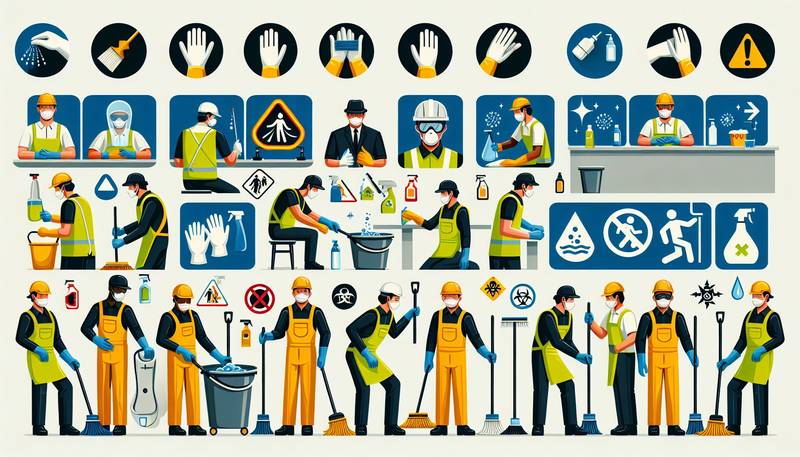Navigating Legal Requirements and Regulations for Cleaning Services
In this article, we will explore some of the key legal requirements and regulations that cleaning service businesses must navigate in order to ensure compliance and protect their business.
Licensing and Registration
One of the first steps in starting a cleaning service business is obtaining the necessary licenses and registrations to operate legally. The specific requirements vary depending on the location and type of cleaning services being provided, but generally include a business license, tax identification number, and any specialized licenses required for certain services such as carpet cleaning or pest control. It is important to research the licensing requirements in your area and ensure that all necessary permits are obtained before starting operations to avoid potential fines or legal issues down the line.
Insurance
Having the right insurance coverage is essential for cleaning service businesses to protect against liability and risks associated with the services provided. General liability insurance is a basic requirement for most cleaning businesses, covering property damage, bodily injury, and legal expenses in the event of a lawsuit. Worker's compensation insurance is also important to protect employees in case of on-the-job injuries. Additionally, bonding insurance may be required to provide clients with peace of mind and protect against theft or damage caused by employees. It is crucial to work with an insurance agent to determine the appropriate coverage for your cleaning service business based on your specific needs and risks.
Labor Laws
Cleaning service businesses must comply with federal, state, and local labor laws governing issues such as minimum wage, overtime pay, employee classification, and workplace safety. It is important to have proper employment contracts and policies in place to outline expectations, rights, and responsibilities for both employees and employers. Additionally, businesses must adhere to regulations concerning hours of work, breaks, and working conditions to ensure a safe and fair environment for employees. Staying informed about changes in labor laws and seeking legal advice when necessary can help cleaning service businesses avoid costly fines and penalties for non-compliance.
Environmental Regulations
Environmental regulations play a significant role in the cleaning service industry, particularly for businesses that use chemicals or provide specialized cleaning services such as mold remediation or hazardous waste disposal. It is important to be aware of federal and state regulations governing the use and disposal of chemicals, as well as guidelines for eco-friendly cleaning practices to minimize environmental impact. Businesses should also be prepared to handle and dispose of hazardous materials in accordance with regulations to protect both employees and the environment. Training employees on proper procedures and investing in environmentally friendly products and practices can help cleaning service businesses stay compliant with environmental regulations and demonstrate a commitment to sustainability.
Conclusion
Navigating legal requirements and regulations for cleaning service businesses can be complex and challenging, but it is essential for ensuring compliance, protecting the business, and maintaining a positive reputation with clients and employees. By understanding and following licensing and registration requirements, obtaining the right insurance coverage, adhering to labor laws, and complying with environmental regulations, cleaning service businesses can operate successfully and sustainably in a competitive industry. Seeking legal advice and staying informed about changes in regulations can help businesses adapt to evolving requirements and mitigate potential risks, ultimately leading to long-term success and growth in the cleaning service industry.










